Playing games
Gaming has always been at the heart of
the Imperial experience, and here’s why
Ready player one: as the racing car revs its engines on the starting grid, waiting for the final lights to go out, there’s a palpable buzz among the games. Controls in hand, adrenaline coursing, each virtual driver is in their happy place, ready to take on their rivals around the challenging track for a chance of glory – the thrill of winning a race without actually having to leave the comfort of their homes.
But this time there is a higher prize at stake: the chance to transform a life, not in the virtual world but in reality; to offer a medically impaired patient the chance of a better life. The world of gaming is now entering a whole new dimension, and at the centre of it is Cogitat, an Imperial startup that is making the most of the gaming culture that’s embedded at the university, and which reaches far beyond its natural realm.
Cogitat’s software creates an interface between the brain and a computer, allowing users to control the machine using only their minds. How have they developed their groundbreaking products? By playing games, of course.
“Games help us to gather the brainwave data we need to train our algorithms,” says co-founder Dimitrios Adamos, an Honorary Senior Research Fellow. “We wrote our own games because we wanted to collect the data in real-world circumstances.” The aim was to gather the right kind of information – brain responses that occurred in natural settings as opposed to an artificially created set-up in a lab.
“We bring people in to play games – racing games or robot games, for example,” says Adamos. “And we stage these games specifically so that the underlying dynamics of the brain are carefully aligned. We leverage that as an engineering tool to be able to pick up the parts that we want from the brain processes and then model them in the AI algorithms.”
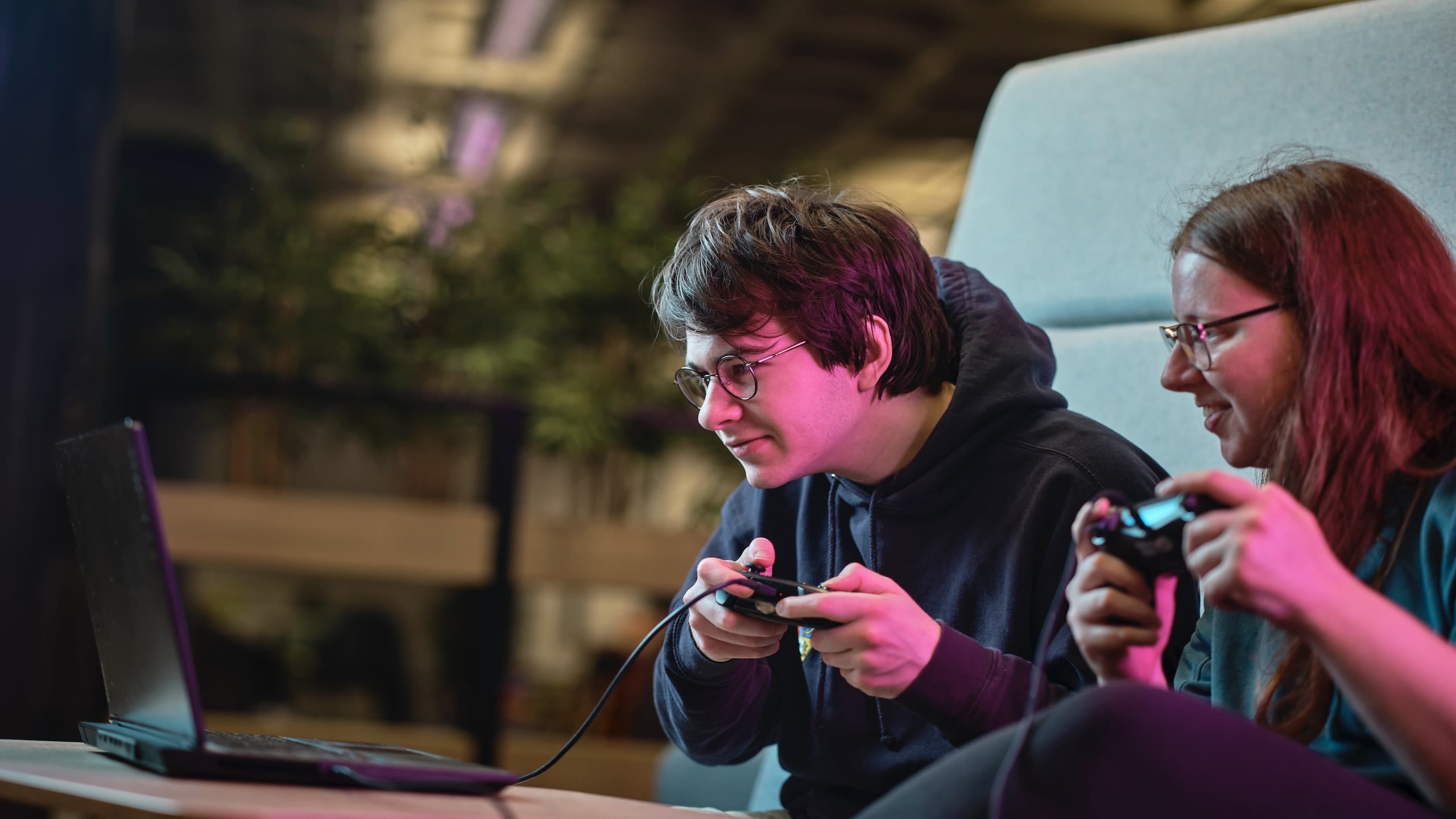
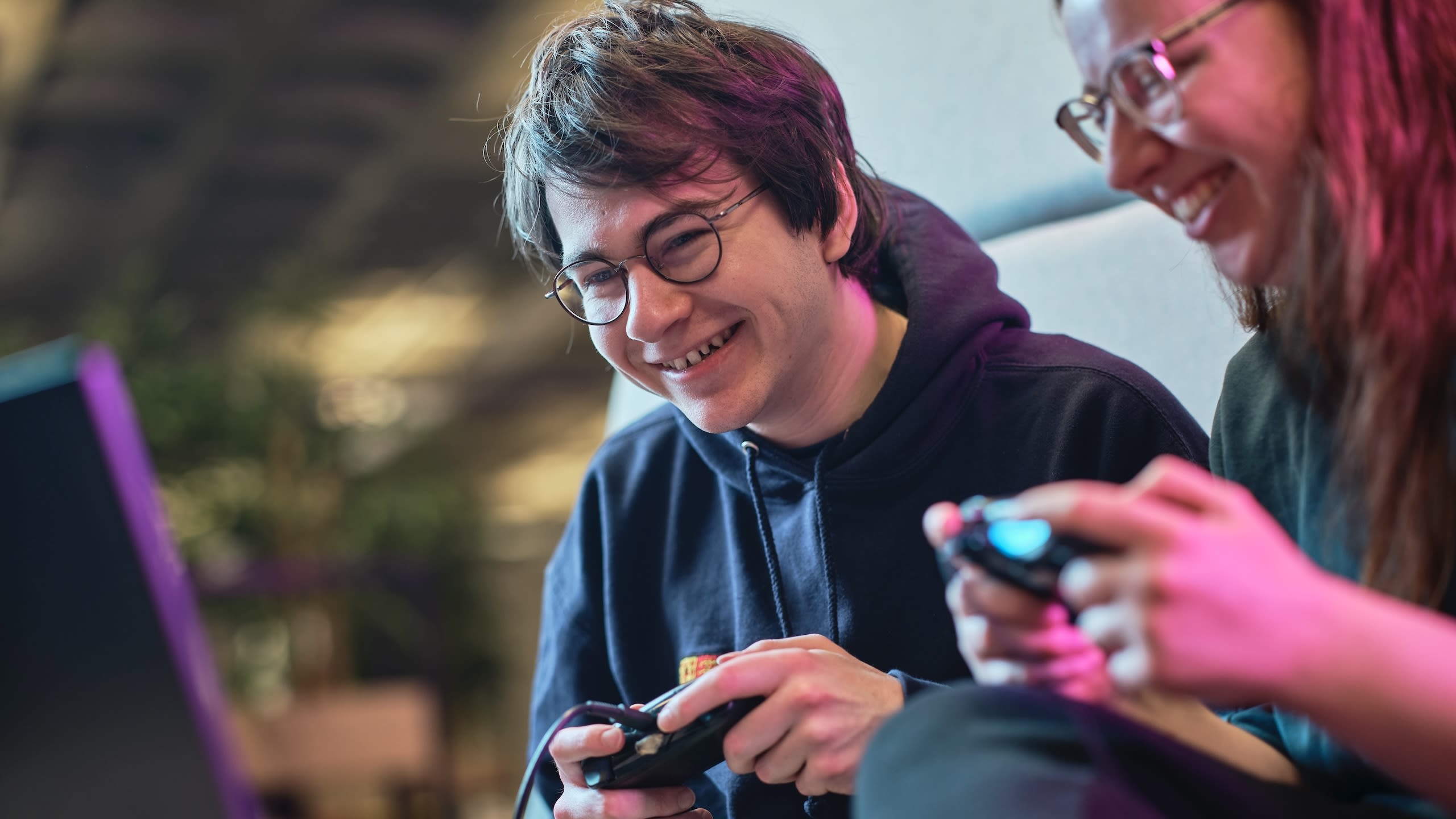
From there, the company has been exploring medical applications of their virtual reality environment, starting with games that could help stroke patients recover hand movement by training with a mind-controlled VR hand. Their software is designed to work with a range of external devices, and they have also made use of machine learning to train their software, making it easier and faster for users to get started.
“Thinking about moving your hand and actually moving your hand are done in quite a personal, specific fashion,” says Cogitat’s other co-founder Stefanos Zafeiriou, Professor of Machine Learning and Computer Vision. “So we had to gather a lot of data to train an algorithm tailored to a specific person. It wasn’t generalised.” Zafeiriou and his team have used state-of-the-art machine learning algorithms and gathered huge amounts of data to try and overcome this hurdle. “What we try to achieve, and to a certain extent have shown, is that it is possible to create a general decoder that can be applied to a large amount of the population.”
Motivation can be a problem for people who have no movement, says Zafeiriou. But exercises performed using Cogitat’s software help to rebuild neural pathways, and it’s possible for patients to see they are accomplishing something at a much earlier point. “You may need some positive feedback and the gamified version is there to help,” he says.
It’s a worthy endeavour, but both Adamos and Zafeiriou stress that, like many people at Imperial, gaming is in their blood. “I’ve been a gamer for as long as I can remember,” says Zafeirou, “starting with arcade games and moving on to Game Boy and beyond, all the way to VR.”
And of course there’s no harm in gaming for gaming’s sake, as four other members of the Imperial community, Mark Morris, Chris Delay and John Knottenbelt (all MEng Computing 2001), and Thomas Arundel (MEng Electrical Engineering 2001) can attest. The four co-founded Introversion Software, and their latest game is The Last Starship, a 2D space construction and simulation game. But despite being set hundreds of miles from Earth, its origins have humbler roots: as part of the celebrated culture of gaming at Imperial.
“My housemate Tom and I were going out and drinking and running around London and having lots of fun,” says Morris. “We’d get home and Chris, who we also lived with, would be in his room, eerily lit by the light of his monitor, coding away.” Things changed when they discovered a university competition with a £10,000 prize. “We realised quite quickly that an entertainment company idea like ours wasn’t what they were looking for, but it is what pulled us all together and made us create a business plan and a pitch. We didn’t even submit in the end, but dangling that little carrot in front of us caused us to take the first step.”
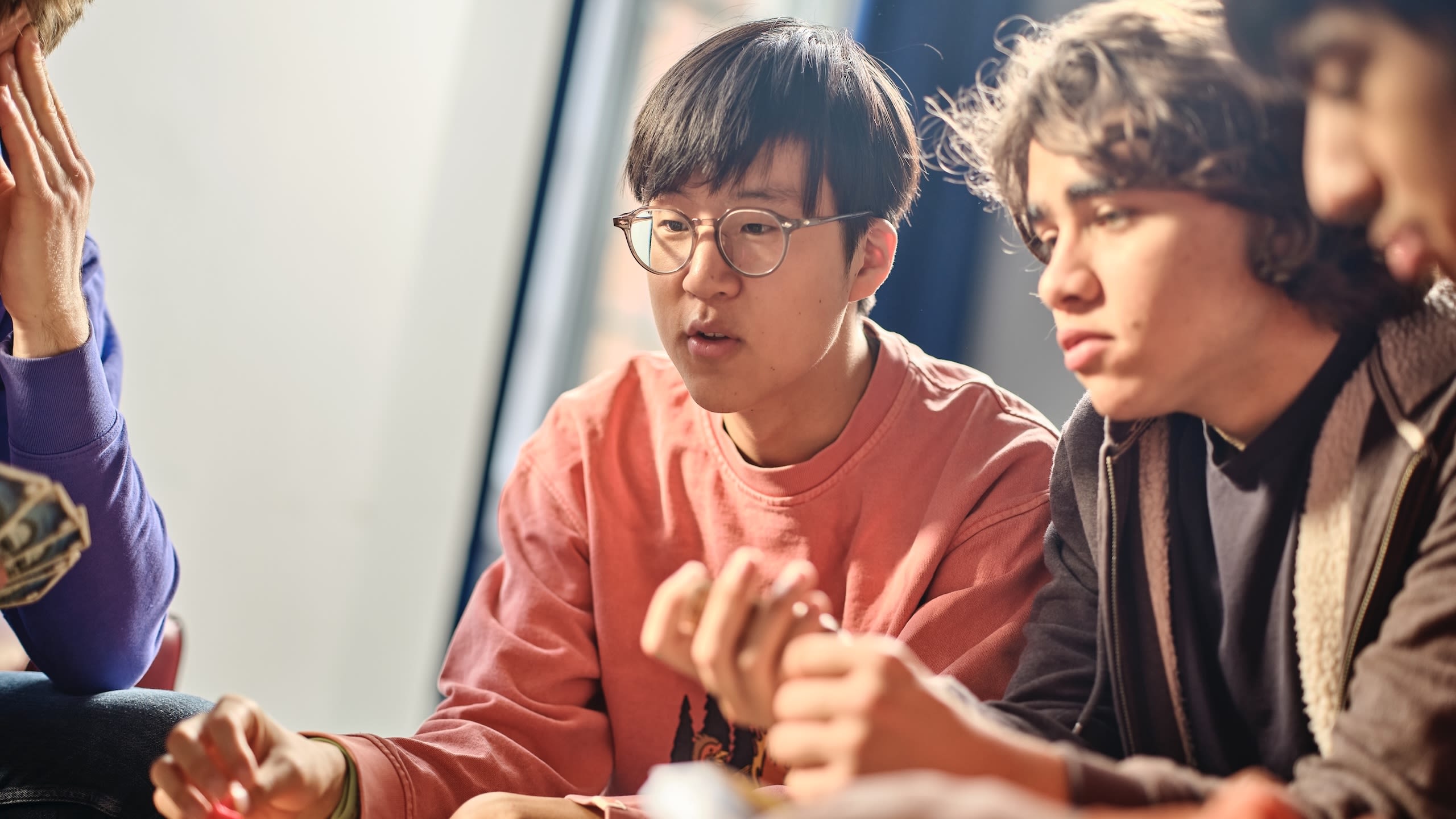
From those inauspicious beginnings, the quartet have since released six internationally successful games and, in 2016, won a BAFTA Game Award for their release Prison Architect. It’s a long way from that late-night glowing screen, but it doesn’t feel that way to Introversion’s directors. “I still think about it, because that’s still us,” says Morris. “We’ve conquered those divisions of space and time to stay friends throughout all of this.”
And that shared enjoyment is what makes gaming so special. “There’s a lot to be said for playing games for the sake of just playing games,” says Dr Francesco Salerno (MRes Physics 2017, PhD Chemistry 2021), who now teaches an evening course each term called Abstract Strategy Games: History, Maths and Game Design.
Salerno is fascinated by strategy, and has worked on various science outreach programmes using games to create interest. Nonetheless, he is quite certain that the main point of engaging with a game should be to play. “I think people shouldn’t be afraid of focusing on the fun rather than the accomplishment it brings them.” For current students, the culture of games is strong.
For current students, the culture of games is strong. Giles Beaven (Chemistry, Fourth Year) was initially attracted to the university’s Tabletop Gaming Society because it didn’t require an intense commitment. “It was a chill thing I could do on a Monday night, just relax and play boardgames with people.” That was in his first year. He is now somewhat more committed, having been the society’s chair for two years.
Together, the group decide on games of varying complexity, from quick 30-minute games to five-hour strategy fests. “It can teach you quite a bit about group work and planning,” says Beaven. The society also pools funds to buy more expensive multiplayer games. A current favourite is called Blood On The Cocktail, which Beaven describes as full of “Traitors style betrayal”. Nonetheless, they’re a welcoming crowd, he says, “and we’ve had lots of good people come and then make good friends. One of the best ways of getting to know someone is by playing a game with them.”
Jeremy Mazauric (Chemical Engineering, Fourth Year) and Freya Stewart (MSci Chemistry 2024; currently studying towards her PhD) run Imperial’s Gaming and eSports club, one of the biggest gaming societies among UK universities. They also stress the social aspect. “The idea of playing with people that I knew and I could actually meet in person was really appealing,” says Stewart, adding that the bursary she received relieved her of a huge amount of added pressure. The club competes in university leagues for different games, such as Counter-Strike 2 and League of Legends.
“You do learn about communicating efficiently and concisely when things are getting quite intense, and a lot about working under pressure,” says Stewart. “You get a better mentality about overcoming challenges,” adds Mazauric. “You’re never going to win all of the time, so you get more resilient and used to setbacks.” For fun, for friendship, for a higher purpose: playing games has always been the Imperial way, a core part of the student experience. So gather your friends, roll the dice and press ‘play’. The challenge has been set and it’s – literally – game on.
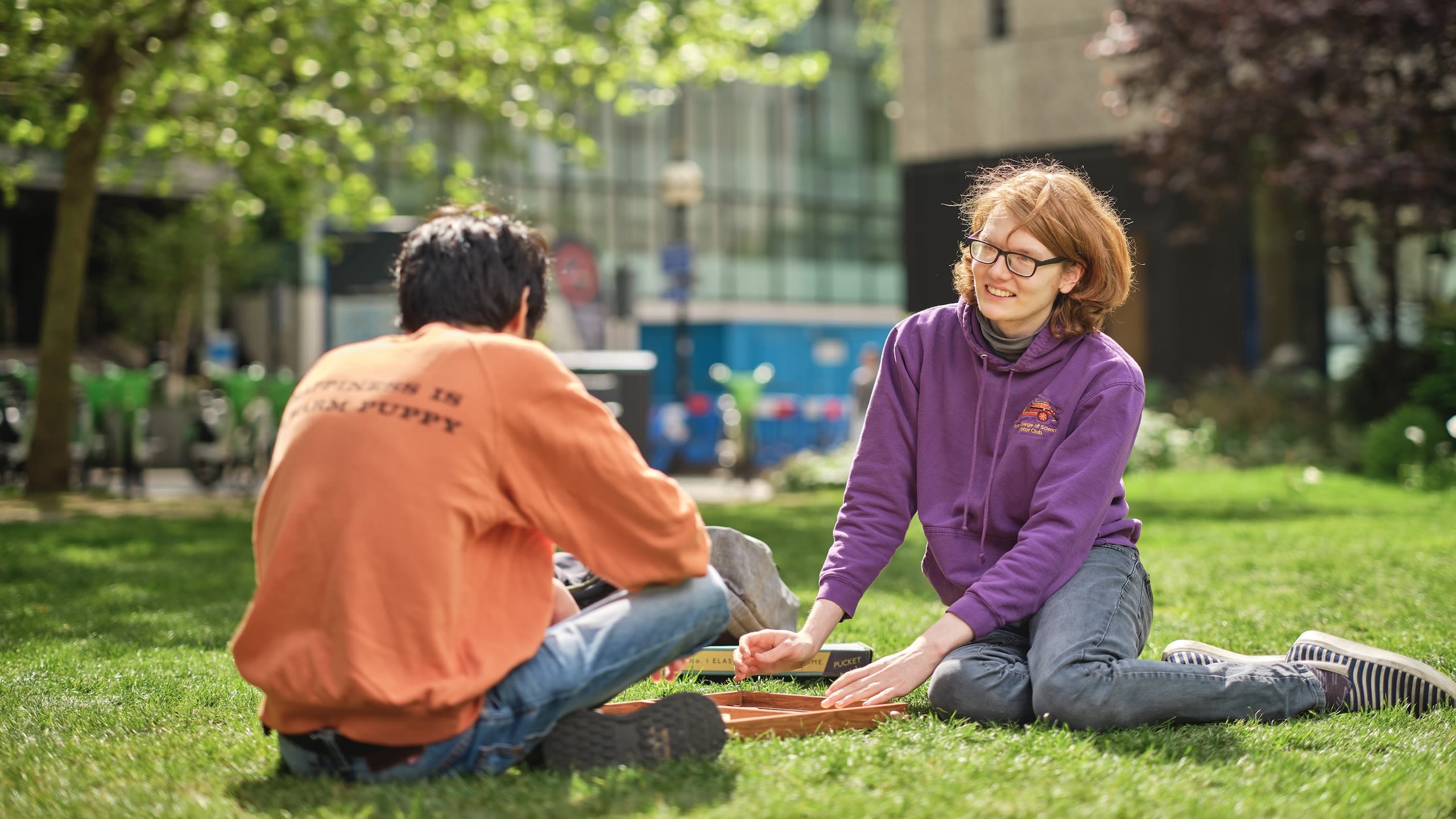
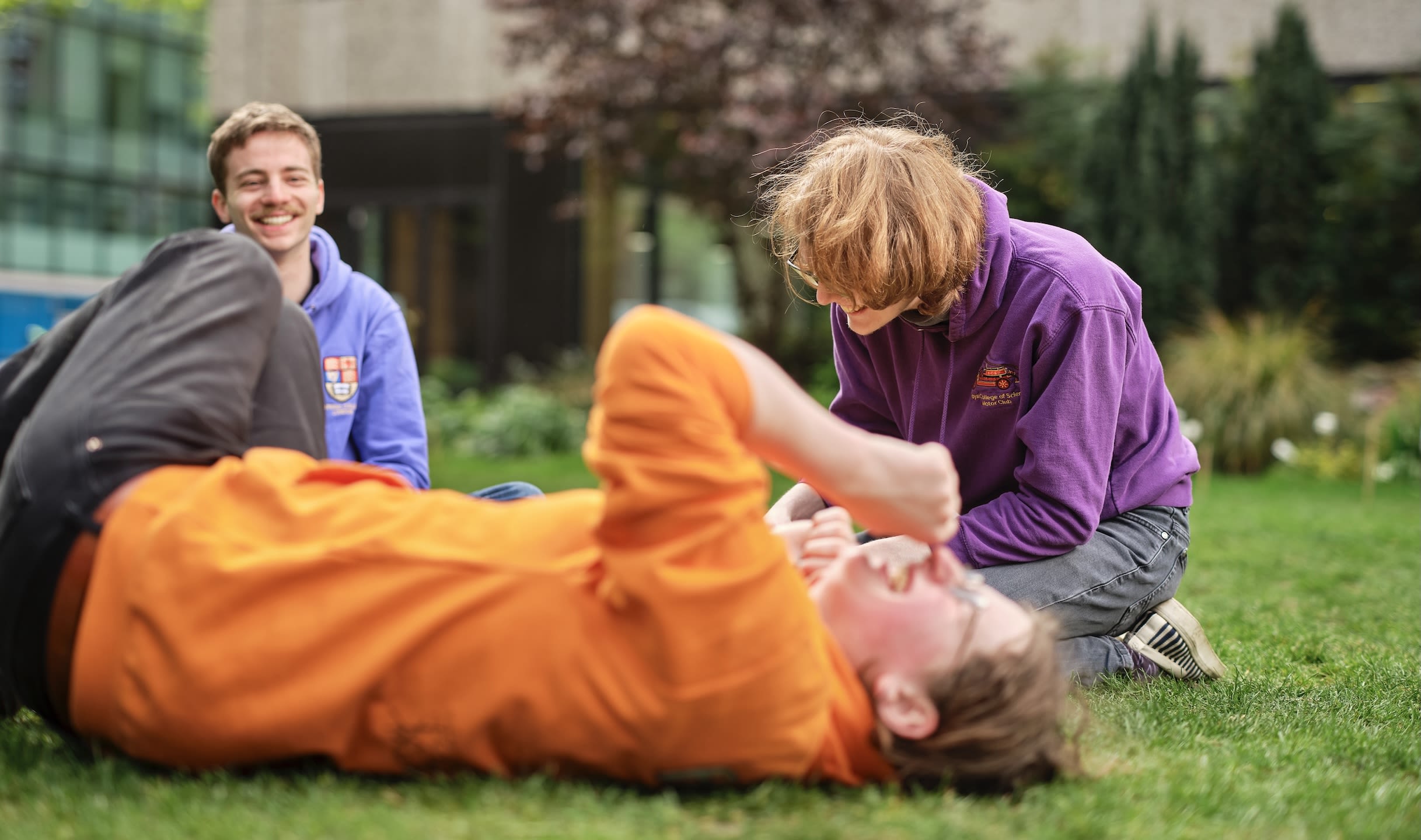
Imperial is the magazine for the Imperial community. It delivers expert comment, insight and context from – and on – Imperial's engineers, mathematicians, scientists, medics, coders and leaders, as well as stories about student life and alumni experiences.
This story was published originally in Imperial 58/Summer 2025.
